Read A Brief History of Life in Victorian Britain Online
Authors: Michael Paterson
A Brief History of Life in Victorian Britain (50 page)
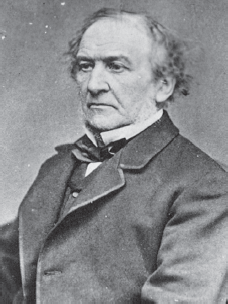
William Ewart Gladstone (1809–98), one of several long-serving political giants – others were Palmerston, Disraeli and Salisbury – who shaped events during Victoria’s reign. A man of great integrity and undoubted ability, he nevertheless failed to hit it off with the Queen.

The Strand in London on a quiet day in the 1890s. This scene gives little idea of the noise, mess and confusion caused by horse-drawn traffic. Iron-shod wheels, horse dung and falling or shying animals could make travel in such a busy thoroughfare far from pleasant.

The Crystal Palace in its new home at Norwood in the 1860s, vastly extended from its Hyde Park original. The towers, designed by Brunel, pumped water for a series of huge fountains in the gardens below. They survived the building’s destruction in 1936 but were later demolished.

The bill of fare for a private dinner in the 1870s, printed and indented to resemble a plate. Wealthy Victorians showed little interest in healthy eating, preferring to overindulge and then seek medicinal cures such as mineral baths.
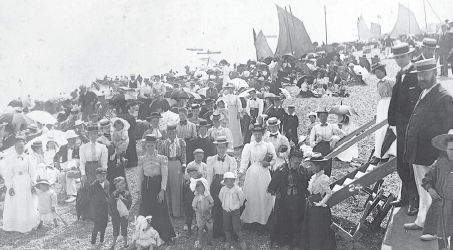
A beach mission at Deal in Kent, 1900, combining relaxation with piety. This picture offers a fascinating glimpse of how people dressed, even at the end of the century, for a seaside holiday.
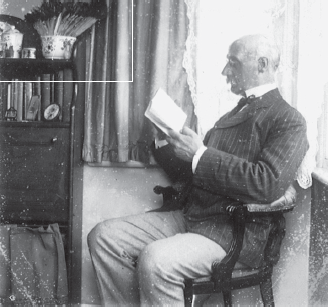
Literature became a serious industry during Victoria’s reign. Not only did the age produce British and foreign authors of outstanding ability, a developing popular press and a newly literate public created an almost limitless market for the written word.
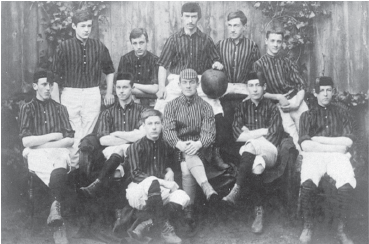
Harrow School football XI, an undated image that conveys the structure and organization that Victorians brought to traditional games, as well as the self-conscious prestige of those who played them well.

A roller-skating rink in the 1880s. The Victorians loved novelty and were much given to crazes, particularly in the field of amusements.
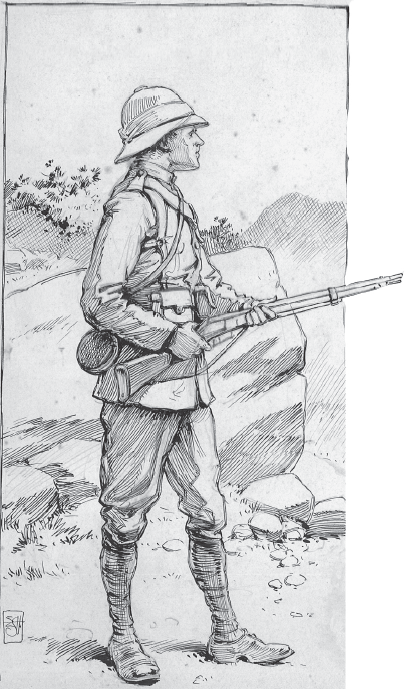
A stoical British ‘tommy’, as drawn for one of the numerous Victorian boys’ magazines. Images like this symbolized, for millions of readers, the qualities that entitled the British to govern the world’s largest empire.

A gentleman (perhaps a tea planter) and his family, outside their bungalow in Ceylon, 1880s, looking – and dressing – much as if they were in Surrey. The British possessed an extraordinary ability to replicate their way of life, and make themselves at home, in all corners of the world.